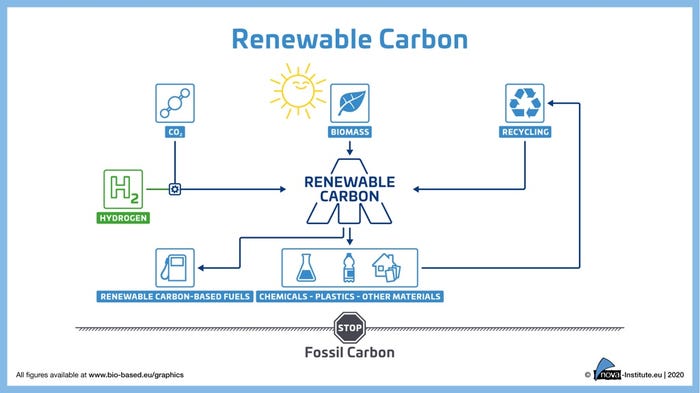LCAs Under Scrutiny: Fossil Fuel-Based Materials Vs. Renewables
Nova-Institute GmbH is critical of aspects of the JRC Plastics Life Cycle Assessment (LCA) methodology and the associated policy implications for these essential packaging materials.

Life cycle assessments (LCAs) play a crucial role in facilitating fair comparisons across various materials and packaging, ensuring a standardized methodology for evaluating environmental impacts.
It’s essential that the data tells the story to make valid apples-to-apples comparisons.
In the pursuit of the European Commission's net-zero targets, the shift from fossil-based to renewable materials is vital for environmental sustainability. Biomass, carbon capture and utilization (CCU), and recycling emerge as renewable carbon sources in this transition.
The Joint Research Centre (JRC), the scientific arm of the European Commission, has been a focal point in addressing methodological challenges in LCAs, particularly regarding bio-based feedstock and the assessment of non-fossil products. The JRC introduced the Plastics LCA Methodology in 2021, aiming to evaluate alternative feedstocks' environmental performance compared to fossil-based plastics. Despite its detailed scientific approach, the methodology faced criticism, prompting a response from stakeholders, especially in the bio-based sector.

The key issues identified in the JRC Plastics LCA method include underestimating the environmental footprint of fossil feedstock, disproportionate scrutiny on renewable feedstocks, methodological inconsistencies between energy and material use, and the inability to transparently visualize biogenic/atmospheric carbon uptake. Furthermore, the methodology lacks consideration for the interface of environmental sustainability assessment, policy design, and the influence of the JRC on European policies.
Recommendations to level the playing field.
To address these challenges, the Responsible Chemistry Initiative (RCI) proposes eight recommendations. First, it advocates for an in-depth investigation into the environmental impact of fossil feedstock to ensure a level playing field with alternative feedstocks. The RCI emphasizes the need for consistent data requirements, sustainability sourcing demands, and considerations of all land use and indirect impacts for all feedstocks.
Additionally, the RCI calls for policies that enable comparisons between novel and established products, promoting innovation and sustainability. It highlights the importance of establishing a balanced LCA methodology between energy and material use, aligning with the EU's waste hierarchy and circular economy objectives. Recognizing the value of renewable carbon uptake and incorporating positive environmental aspects in LCAs is also emphasized.
The RCI urges the acknowledgment of the policy interface and landscape in developed methodologies, emphasizing the need for future scenarios and sensitivity analyses to guide forward-oriented policy-making. Concepts reflecting positive environmental aspects, such as soil carbon storage and biodiversity conservation, should be incorporated into LCAs.
In navigating the complexities of transitioning to sustainable materials, the RCI emphasizes the importance of a robust and fair LCA methodology. Stakeholders, policymakers, and industries are encouraged to consider these recommendations for a more equitable and sustainable future. The RCI's upcoming report on LCA approaches and methodologies aims to provide further insights and guidance in this ongoing discourse.
The full report can be found here.
About the Author(s)
You May Also Like




